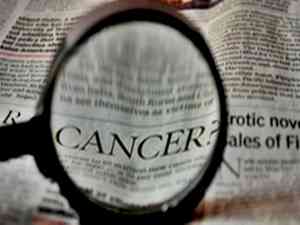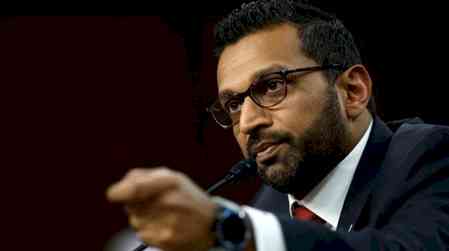85 pc increase in cancer cases, deaths expected by 2050 in S. E Asia: WHO
South-East Asia region is expected to witness an 85 per cent increase in the number of new Cancer cases and deaths, said the World Health Organization (WHO) on Monday, ahead of World Cancer Day.

New Delhi, Feb 3 (IANS) South-East Asia region is expected to witness an 85 per cent increase in the number of new Cancer cases and deaths, said the World Health Organization (WHO) on Monday, ahead of World Cancer Day.
Each year 4 February is commemorated as World Cancer Day.
“The theme this year United by Unique is a reminder of the collective commitment against cancer,” said Saima Wazed, Regional Director for WHO South-East Asia.
“WHO acknowledges every patient’s unique experiences and the value of people-centered care delivered jointly by healthcare providers, families, friends, and community,” she added.
In 2022, the WHO South-East Asia Region had 2.4 million new cases of cancer, including 56,000 children, and 1.5 million deaths.
“Among all the WHO regions, our Region had the highest number of cancers of lips and oral cavity, uterine cervix, and childhood cancers. It is estimated that by 2050, there will be an 85 per cent increase in the number of new cases and deaths in the Region,” said Wazed.
She also noted the progress made in countries in the Region in the last few years. This includes a reduction in tobacco consumption.
“The Region has seen the fastest rate of decline in tobacco use which is a major risk factor for several high burden cancers,” Wazed said.
Wazed said six countries have dedicated national plans for cancer control, and two countries have included cancer as part of the national NCD plan to strategically guide cancer prevention and control activities.
Eight countries have introduced nationwide Human Papillomavirus (HPV) vaccination.
The Regional Director said that 10 countries are implementing global initiatives for childhood cancer and seven countries have operational population-based cancer registries. In 10 countries, tertiary-level cancer care is generally available, reaching 50 per cent or more patients in need.
However, some persisting challenges include scattered responses to cancer control. National cancer control programmes and plans are not fully aligned with evidence or best practices resulting in their ineffective implementation.
Policies and guidance on control of cancer-causing agents prevalent in the Region, such as areca nut, are lacking.
Existing cancer prevention policies and programmes are not fully implemented, leading to millions of avoidable cases, Wazed said. Late diagnosis and lack of national capacities to manage the increasing cancer burden also hinder cancer control.
--IANS
rvt/


 IANS
IANS 










